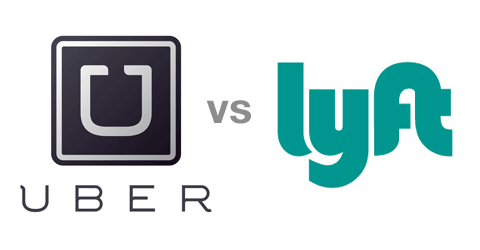Ridesharing Apps Like Uber and Lyft Compete for Drivers and Passengers in Metropolitan Areas
What do you normally do when you need a ride somewhere and you don't want to or can't use public transportation?
If you're like most people you probably look up taxi cab companies in your area and go from there. However, at the disdain of many taxi drivers and cab companies this traditional model is now in heavy competition with peer-to-peer ridesharing apps that let anyone become a taxi driver using their own vehicle, and without having to pay for special licensing.
While old school tax drivers are obviously upset about the recent influx of competition, especially considering the fact that the new rideshare taxis don't have to pay the same fees or deal with the same licensing issues as official cab companies, the rest of the people involved (i.e. - the drivers and passengers using the apps) seem to be very happy about the whole thing, especially the top two rideshare apps - Uber and Lyft.
Uber Taking the Competition Up a Notch
Uber recently "forbid" its New York city drivers from using Lyft or other apps to find passengers while operating from the local Uber base station there. Drivers have to report to a base station that is responsible for managing vehicle maintenance, driver behavior, and ride dispatching. Uber representatives gave a statement clarifying the issue, saying that drivers with other services could use Uber as long as they specify to the passenger which base station they're reporting to. On the other hand, Uber drivers in NYC have reported receiving phone calls threatening to deactivate their driver account if they use Lyft to find passengers.
To many drivers who use multiple rideshare apps to keep their work hours busy, this move appears to be a bit totalitarian and unfair. But this isn't the first time Uber has used unconventional tactics to root out the competition - back in January there were reports that Uber employees had ordered more than a hundred rides from a similar app called Gett, and then cancelled all of them, causing a significant mishap for their competition.
It is a common opinion that Uber could stand to benefit more if they would place more emphasis on improving the value of their service rather than slandering and defaming competitors. With that said, we're sure the company's owners and managers are a very smart and resourceful group, otherwise their app could not have reached the level its at.
We can say one thing for sure, its easier to take Uber more seriously considering the fact that their cars do not wear pink mustaches like Lyft cars do. The fuzzy mustaches stand out like a sore thumb and make it easy for passengers to identify Lyft drivers as they're pulling up, but then they also make it easier for police and officials to pull them over and give citations in areas where regulators are trying to stifle the growth of such unregulated taxi services.
Lyft Gaining Ground by Undercutting and Offering Freebies
Ride-on-demand apps are becoming increasingly competitive as new companies try to claim their stake in the burgeoning industry. Lyft just set up its base station in New York City last month, prompting the recent policy update from Uber - the largest app of its kind with a staggeringly high valuation of $18.2 billion. However, right now many drivers are considering switching to Lyft or other services because Uber has recently dropped its fare prices while keeping the hefty 20% commission rate the same.
For comparison's sake, Lyft recently stopped charging commissions altogether after gathering a large round of funding from investors, and their fare prices are higher as well. The trade-off is that Uber tends to provide much more rides at the moment, so although Uber drivers make less per ride, they typically stay busier.
Still, Lyft is doing an excellent job of attracting attention to its service - it is currently offering passengers in NYC free rides up to $25 for their first fifty rides. That means the passenger gets a free ride as long as their fare is less than $25 and Lyft pays the driver out of the company funds.
Cities Want Their Share of the Pie
One major issue that could change the landscape of how these apps are used, particularly by drivers, is the fact that many city governments are starting to create policies that govern TNCs. Drivers could soon be subjected to strict regulations and the app companies themselves may have to pay for licensing in all of the areas where they have active drivers.
We're sure cab companies are applying political pressure to regulators and city counsels in an effort to level the playing field. At least one editor at Forbes shares the sentiment that cab companies shouldn't be pointing the finger at ride-on-demand apps, considering the horrible quality of service that many conventional taxicab drivers are notorious for.

